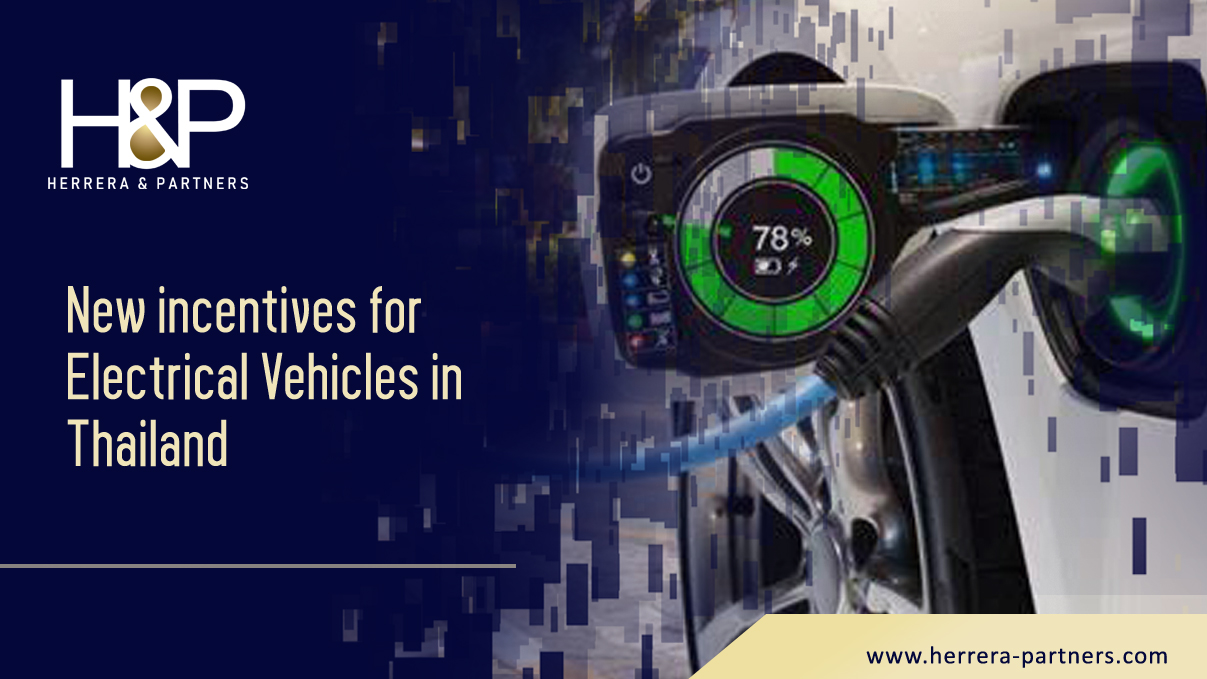
Since Thailand is the leader country of the automotive industry in Southeast Asia, there have been also several regulatory enhancements to update and become a hub for electrical vehicles too. As Thailand see the effects and problems with the pollution and face environmental issues, the government and the automotive companies bet for the modernization and the electric cars and vehicles.
On this regard H&P Bangkok lawyers would like to provide this legal update on and import tax exemption on batteries for electrical vehicles approved by the Thai cabinet in line with the Customs Announcement No. 22 / 2023.
This import tax exemption includes Corporate Income Exemption too. The Exemption of customs duty on electric vehicle parts, aims to promote investment in the production of Electrical Vehicle parts, consisting of 9 items as follows:
- Battery.
- Electric vehicle propulsion motor (Traction motor).
- Compressors for electric vehicles.
- Battery Management System (BMS).
- Driving control system.
- On-board charger.
- DC/DC converter.
- Inverter, including PCU inverter.
- Reduction gear.
The conditions for duty exemption will affect to imports from the date of this announcement, effective until 31st of December 2025, for the assembly or production of electric vehicles or electric ships batteries with a certificate of Thailand Automotive Institute.
The batteries must be used for assembling or producing an electric car or an electric vessel within 1 year from the date of importation. If the timeframe is 1 year is not sufficient, then an extension of 6 months can be granted.
With this new regulation, Thailand look for becoming a leader in the manufacturing of electrical vehicles for ASEAN in the long term, although the revenue of the import duty will suppose looses in the short term for the administration.
There are also CIT exemptions as a policy to support the use of electric vehicles. The initial conditions include being an industrial operator whose factory is in a free zone or an importer appointed as an official distributor of, etc.
The exemptions of duty applies for passenger cars (with no more than 10 seats) and pick-up trucks powered by a battery (Battery Electric Vehicle: BEV) assembled or manufactured in a free zone according to customs law or in the free trade zone under the law of the Industrial Estate Authority of Thailand, which are taken out from the free trade zone from October 4, 2022, to 31st of December 2025, for use or sale within Thailand.
According to the Custom Act, the incentives for manufacturing in these free trade zones or in a trade zone under the Industrial Estate Act., are applicable for customs duty exemption with the Customs office.
According to this announcement, manufacturers based on free zones and industrial estates will receive this. However, all of them must be manufacturers who operate an electric car business or manufacture parts, which must be distributed in Thailand.
If you need more information on setting up a business related to automotive in Thailand, please contact our Bangkok lawyers at [email protected]


